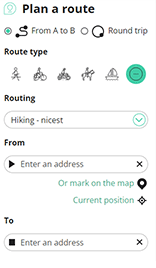If you look at the painting "Swamp in Genck" by Joseph Coosemans you can hardly believe that he planted his donkey here near this pond. Cows grazed among the swampy puddles while farmers relaxed keeping watch. When Joseph Coosemans painted "Swamp in Genck" in 1891, Genk had 2400 inhabitants, now there are more than 66000. Then they were families that lived there from generation to generation, now there are more than 100 different nationalities. The Genk that today spreads around Coosemans' swamp is a fast and ill-considered built city. Widely spread are residential areas in the grid form of the cités, spacious motorways, wide ring avenues and large industrial estates. "The colonization of the Kempen" - as it is mentioned in government archives - had already started before Joseph Coosemans painted his marshland. The Reclamation Act of 1847 required municipalities to make wild land productive. The poor sandy soil was planted massively with fast-growing coniferous trees. The Kempisch plateau around Genk with its fens, sand dunes and heathland quickly changed its appearance. A large part of the wood production went to the mining industry in Wallonia. From the beginning of the twentieth century, the wood could simply remain in the region. The first drilling rigs rose above the landscape, the coal rush on Limburg had begun. Mining concessions were issued to dig for coal in the middle of Limburg. New mining villages such as Zwartberg, Winterslag and Waterschei were built, with garden districts, new churches, schools and casinos. Workers flocked, from inside and outside the borders.
![]() | | Public | Dutch
| | Public | Dutch

Select one of the most popular activities below or refine your search.
Discover the most beautiful and popular trails in the area, carefully bundled into appropriate selections.
Source: Paul Hermans
Copyright: Creative Commons 4.0
Select one of the most popular categories below or be inspired by our selections.
Discover the most beautiful and popular attractions in the area, carefully bundled in appropriate selections.
Source: Paul Hermans
Copyright: Creative Commons 4.0
With RouteYou, it's easy to create your own customised maps. Simply plot your route, add waypoints or nodes, add places of interest and places to eat and drink, and then easily share it with your family and friends.
Route planner

<iframe src="https://plugin.routeyou.com/poiviewer/free/?language=en&params.poi.id=7311793" width="100%" height="600" frameborder="0" allowfullscreen></iframe>
Try this feature for free with a RouteYou Plus trial subscription.
If you already have such an account, then log in now.
© 2006-2024 RouteYou - www.routeyou.com